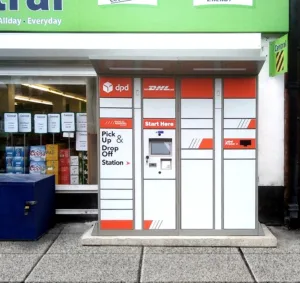By James Hyde, CEO of James and James Fulfilment
In an ecommerce retail model, the quality of the fulfilment process – from the timeliness of delivery to the look and feel of the packaging – defines a customer’s experience. And that process has to be consistently perfect whether a retailer is shipping one product or one thousand.
So let’s explore how offering a fulfilment solution that goes above and beyond the role of a traditional fulfilment provider, and providing a fully integrated value-added service, gives ecommerce retailers the opportunity to scale and succeed in 2021.
First Impressions Count
Too many retailers underestimate the impact of fulfilment on customer experience. Spending a fortune on carefully curated websites and great delivery promises is a wasted investment if the product turns up late, damaged or swathed in acres of unnecessary packaging. First impressions count.
The way the product is presented, from the neatly folded packing slip, to the personalised message, to the low-impact packaging, should reflect the brand and reinforce the customer experience regardless of how many units sold.
D2C fulfilment is challenging
Direct to Consumer (D2C) fulfilment is challenging for many firms – especially companies looking to compete with the big names in the business, with next day delivery and a range of courier options.
Scaling up to cover peak sales can be a major headache too. The issue is not just recruiting the staff but also ensuring consistent quality – from picking accuracy to packaging. How can a retailer scale up in response to an unexpected plug from an Insta-influencer or a mention in a magazine? How can that opportunity be grasped without a robust, scalable and repeatable fulfilment model?
Few individuals become retailers because they are excited about the fulfilment process – yet great fulfilment skills can make or break an online business. This is an absolutely critical component of the customer experience. Therefore, companies need to put serious thought into it.
Fulfilment expertise delivers
Outsourced fulfilment is an obvious solution. It offers economies of scale and ensures a retailer can respond to spikes in demand without affecting the quality of customer experience.
If a retailer is to achieve that essential match of fulfilment experience to the core brand value, there are many issues to consider upfront. An absolute fundamental is to be realistic about the delivery promise. This means having a clear understanding of the cost model. What does it cost to ship to the UK and internationally? What is the variance between next day and longer shipping times – and how much do courier prices vary?
This is where the insight collected by a fulfilment partner can make a difference for a retailer looking to scale up the ecommerceoperation. With a deep understanding of the complete cost model, a retailer can match delivery options to the required level of customer experience. For example, is free shipping essential to reinforce the brand’s luxury feel, or does the retailer need to set a minimum spend threshold to make free shipping viable?
Removing fulfilment complexity
Fulfilment delivery policies will not be set in stone; and for retailers, with a diverse product portfolio and customer base, delivery costs are likely to vary. And, without accessing continuously updated information about fulfilment costs, such decisions can only be based on gut feel – and that is where too many retailers have caught a cold and ended up selling at a loss.
In contrast, a good outsourced fulfilment partner solves this and can help retailers to develop packaging that reflects brand image. They can provide insight into the pros and cons of recycled materials – from the additional weight that has to be considered for any air freight, to balancing the cost of recycled packaging against the value of customer perception and approval.
In addition, a fulfilment partner should share continuous insight regarding both stock levels and age of stock. They should work with retailers to show where costs could be recouped – such as the opportunity costs associated with retaining a warehouse full of unsold items, compared with selling those goods at discount. Proactive inventory management can transform this retail cost model.
Conclusion
Fulfilment is an extension of the customer experience and one that will define a customer’s brand perception. But it is also about efficient retail operations and proactive management of both inbound stock and outbound product to maximise revenue.
Retailers that fail to embed the perfect fulfilment model within the customer experience are not just missing an important part of the process, they are fundamentally misunderstanding the way consumers and ecommercefit together.
ENDS







